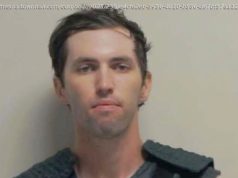Speculation is that President Trump will pardon the former Maricopa County, Ariz., sheriff, who was convicted of criminal contempt of court.
PHOENIX — Joe Arpaio, the former Arizona sheriff, is hoping to join a list that includes murderers, rapists, financial cheats and political miscreants.
From George Washington to Barack Obama, presidents have granted pardons or commuted sentences for about 30,000 people, said P. S. Ruckman, the political science professor who edits the Pardon Power blog that explores the history and scope of presidential clemency.
« The typical pardon or commutation is given to someone you and I have never heard of, and we never will hear of them again, » said Ruckman. « They’ve committed a low-level, kind of non-violent crime. … I would dare put a high 90 percentage on it. »
And there are others that are major news, at least in their time.
Opinion: Joe Arpaio doesn’t deserve a pardon
Opinion: Arpaio lawyers: Sheriff Joe is not a racist
Opinion: Pardon America’s toughest sheriff
Trump has said he is « seriously considering » a pardon for Arpaio, the former Maricopa County sheriff, an early supporter of his presidential campaign who was convicted of criminal contempt of court earlier this month. For his part, Arpaio has noted he would accept such a get-out-of-jail-free card.
With Trump scheduled to hold a campaign rally in Phoenix on Tuesday, Arpaio may not have long to wait.
Here are five things to know about presidential clemency:
From William McKinley through Richard Nixon, presidents averaged 947 pardons each, according to figures from the Office of the Pardon Attorney in the U. S. Justice Department. Gerald Ford paid a political price for pardoning Nixon and others tied to the Watergate scandal in 1974, ushering in a new era of declining clemency. Starting with Ford, presidents have averaged 311 pardons each.
Ruckman said part of that decline stems from the way presidents treat criminals generally since Willie Horton’s controversial furlough helped define the 1988 White House race. Then-Massachusetts Gov. Michael Dukakis was pummeled for the program that let Horton, a convicted murderer, out of prison temporarily. Horton raped a woman and assaulted her fiance while on furlough.
The 24-hour news cycle also threatens an unwanted spotlight on presidential actions that can easily be misunderstood or bent for political gain, others have noted.
Since Ford’s pardon for Nixon, almost no one gets a pardon in the president’s first year in office.
More: Ex-Sheriff Joe Arpaio: I’d take a pardon from President Trump
More: Ex-sheriff Joe Arpaio found guilty of criminal contempt of court
From McKinley through Ford, presidents averaged 99 pardons in their first year. Since then, they have averaged two. That’s 11 people from first-year presidents since 1977. And George H. W. Bush accounted for nine of those 11.
Jimmy Carter took heat for pardoning those who avoided the draft for the Vietnam War and Bill Clinton pardoned Marc Rich, a hedge fund manager who cheated on his taxes and did business with Iran when it was prohibited.
But pardons have not been limited to matters of conscience and politically connected white-collar criminals. George Washington pardoned two men convicted of treason stemming from an insurrection over a whiskey tax. Andrew Johnson pardoned three people tied to the conspiracy to kill Abraham Lincoln.
Dwight Eisenhower pardoned a master sergeant who admitted killing an 8-year-old girl at a U. S. Army base in Japan. And Carter also pardoned four Puerto Rican nationalists who in 1954 fired 30 rounds at members of Congress, wounding five members.
If Arpaio gets help from Trump, it won’t be the first time a law-enforcement official got a break. Other people convicted of contempt were pardoned, too.
On his next-to-last day in office, George W. Bush commuted the sentences of two former Border Patrol agents who shot an unarmed, fleeing drug smuggler and tried to cover up the incident.
More: Phoenix police chief: City to deploy ‘maximum staffing’ at Trump rally
James Buchanan pardoned a former judge on forgery charges.
William McKinley pardoned Alexander McKenzie, a former sheriff and political kingmaker who was convicted of contempt after mining gold in Alaska despite a court order to stop.
Ronald Reagan’s early pardons involved two former FBI agents convicted in connection with efforts to break into homes to find anti-war radicals in the 1970s. One of them was Mark Felt, the man who later revealed he was the Watergate source known as « Deep Throat. » Unaware of Felt’s help to reporters, Nixon sent Felt champagne after the pardon.
The most notable pardon involving Arizona is the case of former governor Fife Symington.
In 1964, Symington saved Clinton’s life by pulling him from the ocean in Hyannis Port, Mass. Clinton returned the favor by giving Symington a pardon on his last day in office in 2001, averting the need for a retrial on fraud charges.
Other Arizona cases are largely forgettable.
Obama pardoned Andrew Ellifson, who helped set up an offshore pornographic spamming operation .
Nixon pardoned Alejandro Meza Munoz for helping steal $200,000 in equipment from Davis-Monthan Air Force Base.
Follow Ronald J. Hansen on Twitter: @ronaldjhansen






